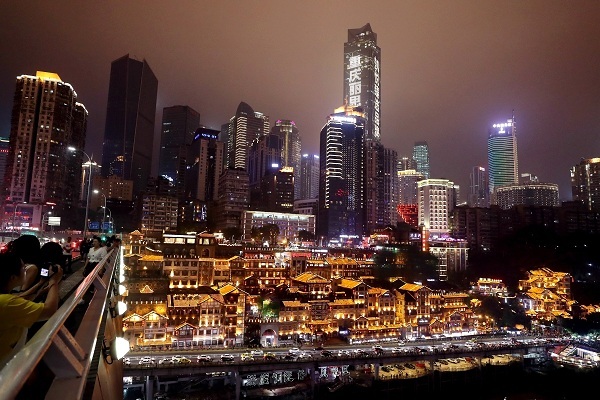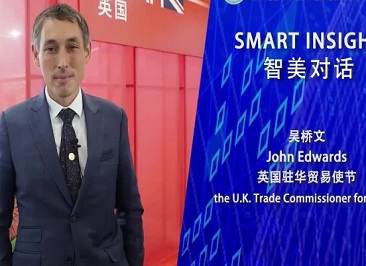Chongqing prioritizes NEV layout
Updated:2021-11-02
english.liangjiang.gov.cn
 |
|
Visitors enjoy night views of Hongyadong from the Qiansimen Bridge over the Jialing River in Chongqing. [Photo by Wang Zhuangfei/China Daily] |
The new energy vehicle (NEV) has been deemed a promising industry for carbon peaking and neutrality goals. Statistics from the China Association of Automobile Manufacturers suggest that from January to September of this year, NEV sales in China saw a year-on-year growth of 190 percent, with the growth rate over 10 times higher than gasoline-fueled automobiles.
Chongqing seems to have developed faster than most other parts of China in this regard. According to the Chongqing Economic and Information Technology Commission, during the first nine months, 97,000 and 93,000 NEVs were produced and sold in the municipality, year-on-year increases of 223 percent and 210 percent, respectively.
The government has proposed that by 2025, NEV sales in China are expected to account for 20 percent of total automobile sales.
Officials from the Chongqing Economic and Information Technology Commission said that Chongqing is blessed with full-fledged NEV industrial systems and chains.
In addition, Chongqing’s auto industry is supported by powerful research platforms and talents, such as Changan Automobile Global R&D Center, and research teams from Chongqing-based universities – Chongqing University, Chongqing University of Technology, Chongqing University of Posts and Telecommunications, and Chongqing Jiaotong University. These teams are experienced in the automobile, new energy, mechanics, electronics and software industries, and have given Chongqing technological advantages in NEV design and testing.
Chongqing has also formulated corresponding policies to ensure the use of battery electric vehicles for taxis, online ride-hailing services, official cars, and delivery vehicles.
Video

John Edwards, the UK trade commissioner for China, praised Chongqing over its rise as a burgeoning center in intelligent manufacturing.





